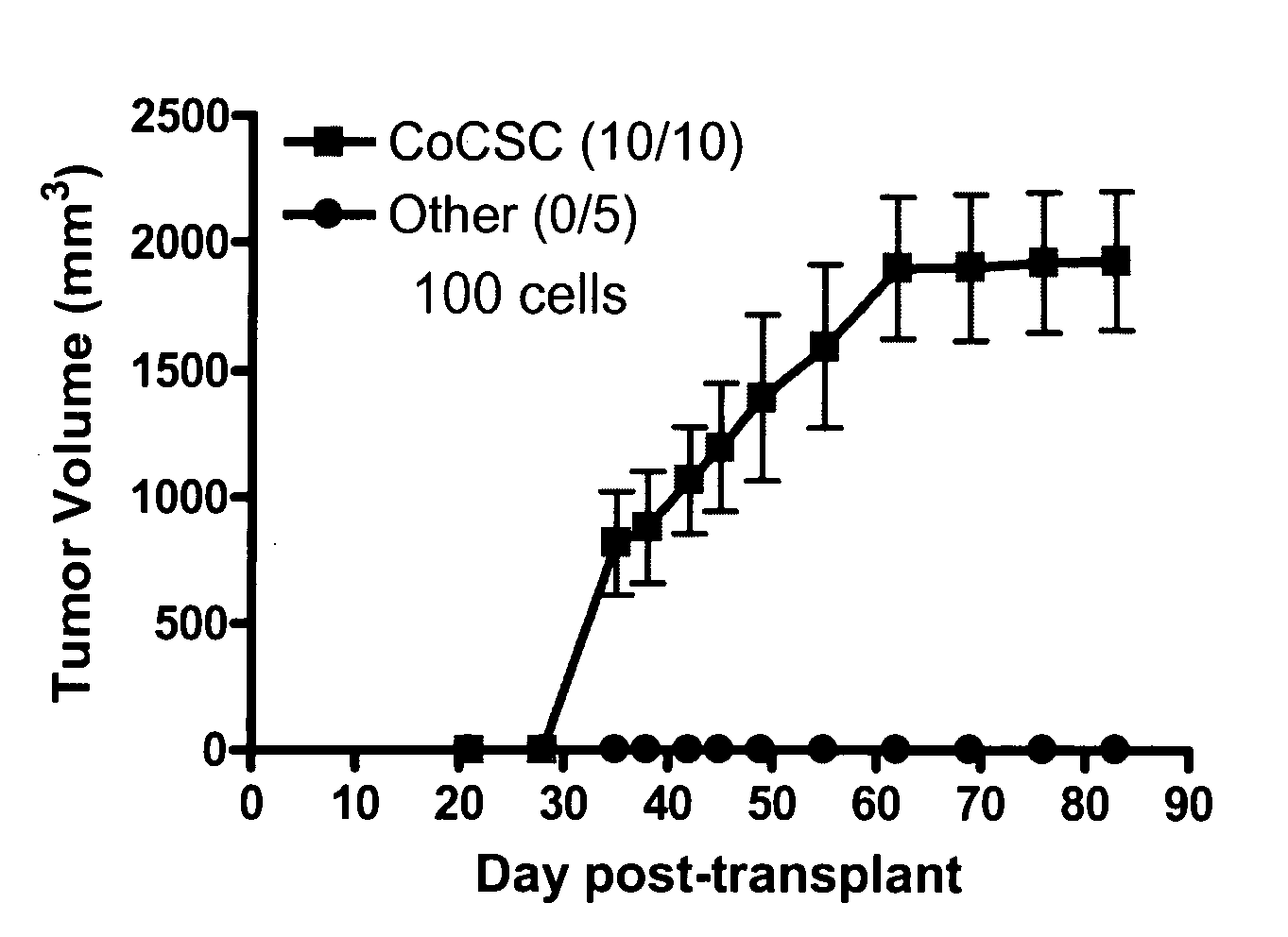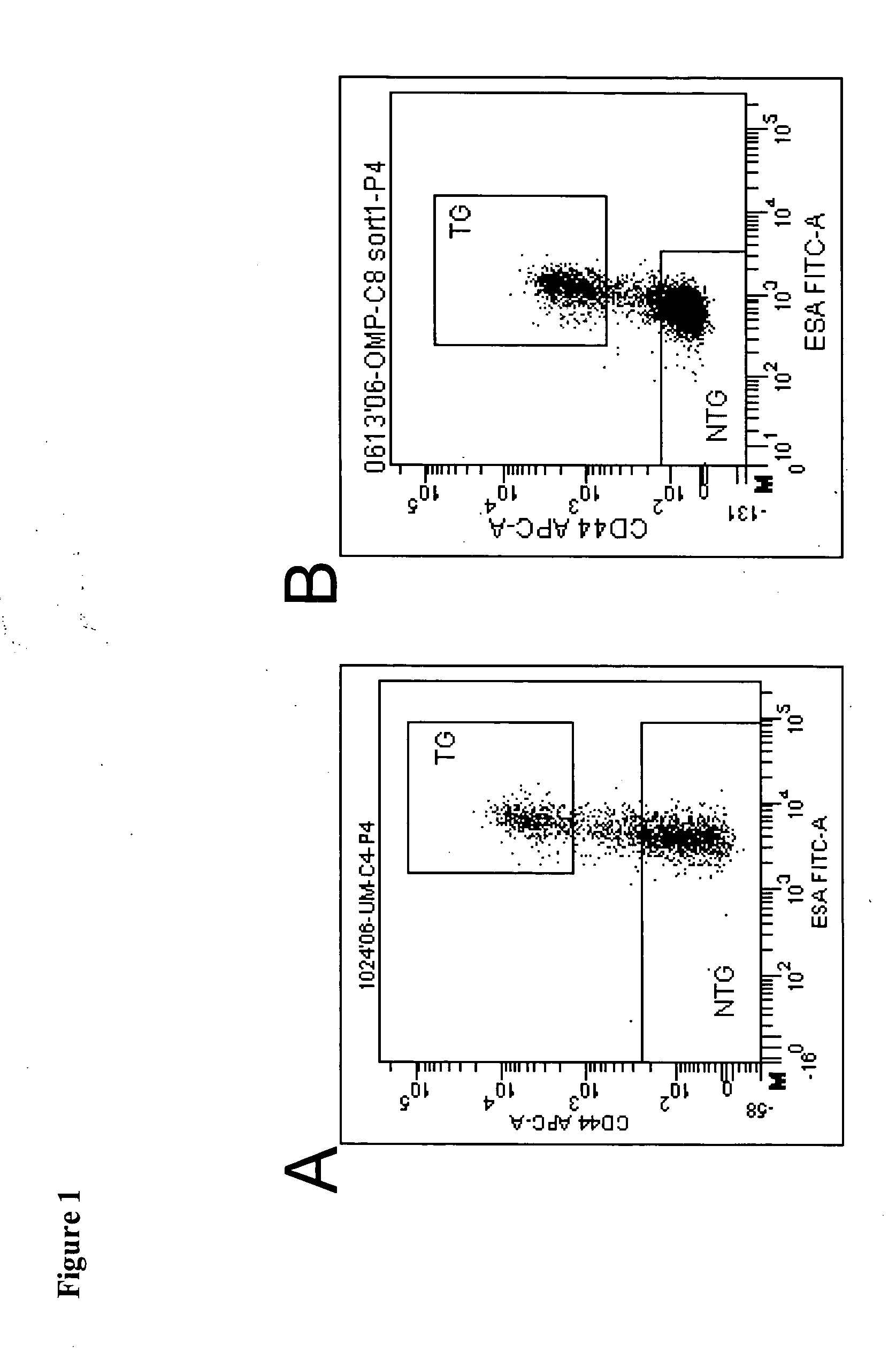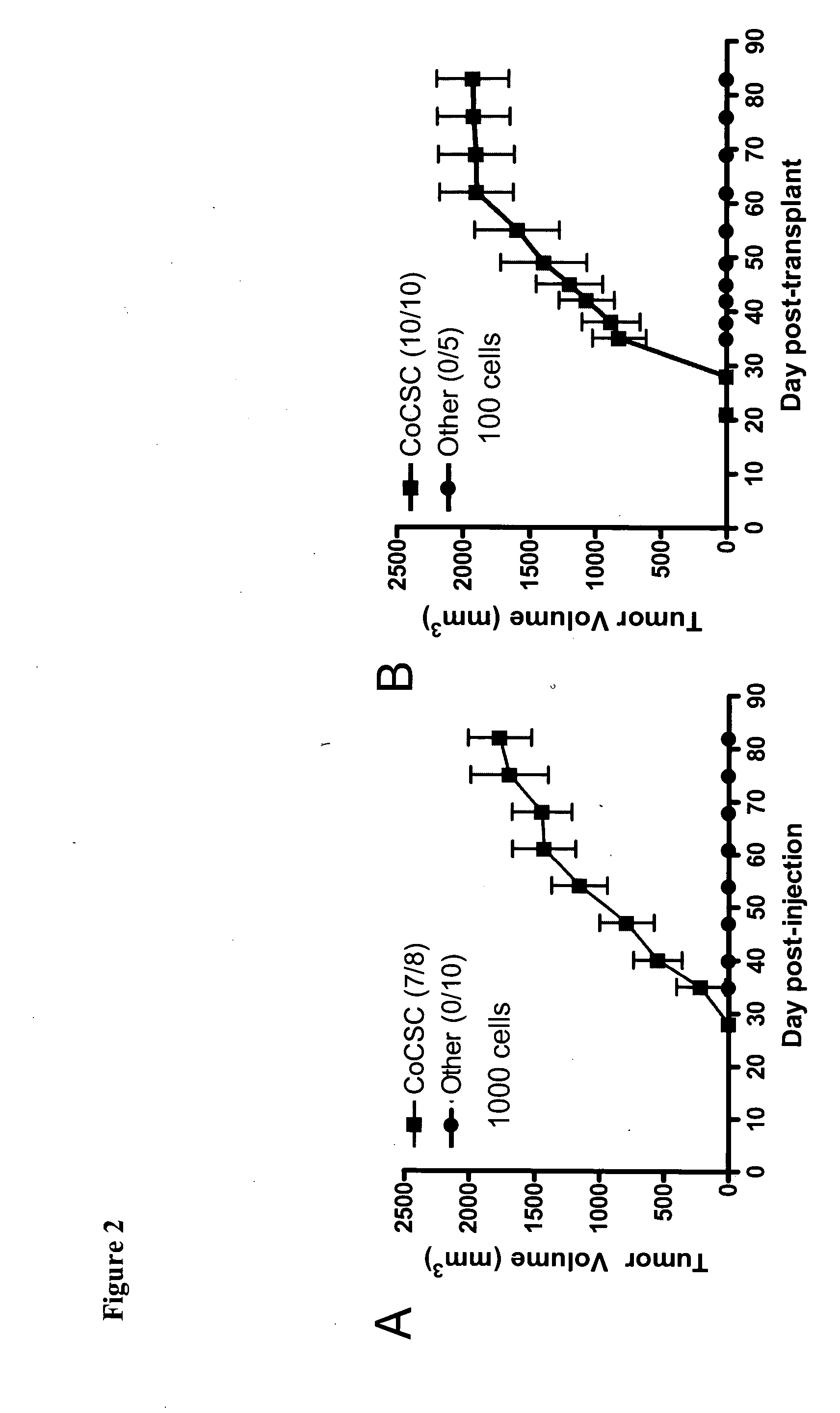Compositions and methods for treating and diagnosing cancer
a cancer and composition technology, applied in the field of cancer, can solve the problems of breast cancer remaining a leading cause of death in middle-aged women, breast cancer remains an incurable disease, and mortality rates have decreased, and achieve the effect of increasing aldh activity
- Summary
- Abstract
- Description
- Claims
- Application Information
AI Technical Summary
Benefits of technology
Problems solved by technology
Method used
Image
Examples
example 1
Isolation of Colon Cancer Stem Cells
[0314] Recently it has been demonstrated that malignant human breast tumors harbor a small, distinct population of cancer stem cells that are enriched for the ability to form tumors in immunodeficient mice. An ESA+, CD44+, CD24− / low, Lin− cell population was found to be 50-fold enriched for tumorigenic breast tumor cells compared to unfractionated tumor cells (Al-Hajj et al., 2003, PNAS 100:3983-8). This example describes the identification of a cancer stem cell population in colorectal cancers.
[0315] To identify colon cancer stem cells, a tumor sample from a patient biopsy of a colorectal carcinoma minimally passaged in immunocompromised mice was examined. Tumor cells were removed under sterile conditions, cut into small pieces, and minced completely using sterile blades. Single cell suspensions were then obtained by enzymatic digestion and mechanical disruption. Specifically, minced tumor pieces were mixed with Collagenase / Hyaluronidase, suppl...
example 2
Identification of Colon Cancer Stem Cell Markers by Microarray Analysis
[0319] Following the successful isolation of colon cancer stem cells, microarray analysis was utilized to identify markers for colon cancer stem cells versus non-tumorigenic tumor cells. Presorted tumor cells, tumorigenic cancer stem cells, and sorted non-tumorigenic solid tumor cells were isolated and separated by FACS as described above in duplicate. Total RNA was isolated from the different cell populations using RNeasy (Qiagen, Valencia, Calif.) according to the manufacturer's protocol. Probes for microarray analysis were prepared and hybridized to Affymetrix HG-U133 gene chips according to Affymetrix protocols (Affymetrix, Santa Clara, Calif.). Arrays were scanned with an argon-ion laser confocal microscope and the intensity for each probe set on the array was assessed with Affymetrix Microarray Suite 4.0 software according to Affymetrix procedures.
[0320] Genes identified by microarray analysis as having i...
example 3
Analysis of HES6 Expression by Colon Cancer Stem Cells
[0322] The identification of HES6 expression as upregulated in tumorigenic ESA+44+ colon tumor cells compared to non-tumorigenic colon tumor cells enables the use of HES6 to enrich further for colon cancer stem cells. To examine HES6 expression by ESA+44+ tumorigenic colon stem cells, the HES6 promoter is used to control expression of the marker protein GFP in colon tumor cells and cells are sorted based on cell surface expression of ESA and CD44 as well as GFP expression.
[0323] To generate a HES6 regulated GFP reporter construct, the endogenous HES6 promoter is isolated from genomic human DNA and ligated 5′ to a GFP expression cassette and then incorporated into the ViraPower™ Lentiviral Expression System (Invitrogen, Carlsbad, Calif.) using standard recombinant DNA techniques. Viral particles are generated according to the manufacturer's protocol and used to infect colon tumor stem cells isolated as described in detail above....
PUM
| Property | Measurement | Unit |
|---|---|---|
| Tm | aaaaa | aaaaa |
| temperature | aaaaa | aaaaa |
| temperature | aaaaa | aaaaa |
Abstract
Description
Claims
Application Information
 Login to View More
Login to View More - R&D
- Intellectual Property
- Life Sciences
- Materials
- Tech Scout
- Unparalleled Data Quality
- Higher Quality Content
- 60% Fewer Hallucinations
Browse by: Latest US Patents, China's latest patents, Technical Efficacy Thesaurus, Application Domain, Technology Topic, Popular Technical Reports.
© 2025 PatSnap. All rights reserved.Legal|Privacy policy|Modern Slavery Act Transparency Statement|Sitemap|About US| Contact US: help@patsnap.com



